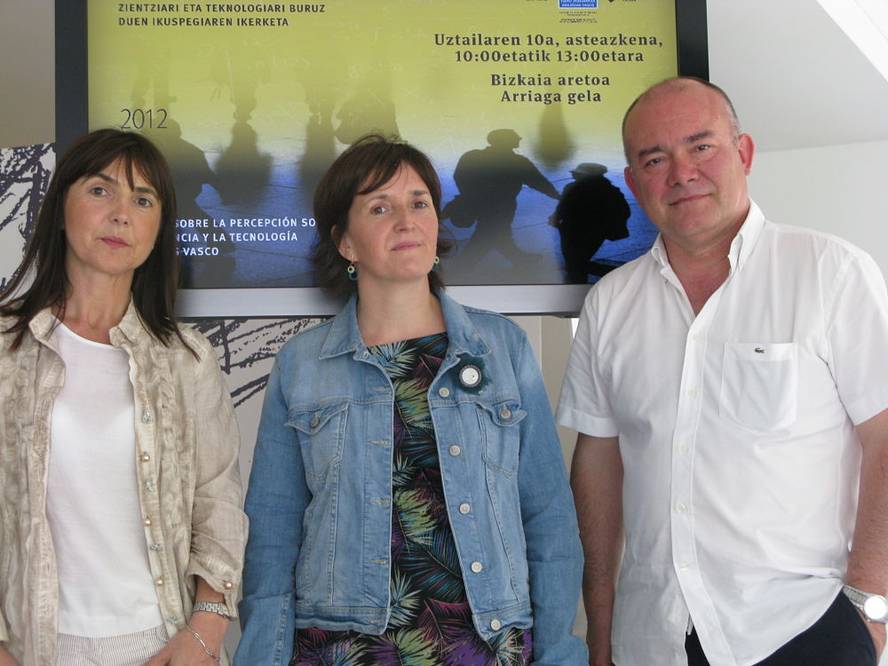Interest in science and technology has grown by 11% since 2006
Today the results of the study “Study 2012” of the perception of Basque society on science and technology have been presented. The presentation took place in Bilbao and in addition to highlighting the most outstanding results, compared the results with the analysis carried out in 2008.

The presentation of the study was conducted by the author herself, Leire Cancio, General Director of Elhuyar, Miren Begoñe Urrutia Barandika, Director of Scientific Policy of the Department of Education, Linguistic Policy and Culture of the Basque Government, and Juan Ignacio Pérez, Head of the Chair of Scientific Culture of EHU.
According to the authors, the aim of the study was to measure and diagnose the opinion of Basque society in 2012 on science and technology. In parallel, the evolution of the perception of Basque society on the subject is analysed, comparing it with the 2008 data.
After the presentation, attendees were also able to participate in a working session to analyze the results and draw conclusions.
Quantitative and qualitative
The analysis covers two approaches, qualitative and quantitative. From a quantitative point of view, the increase in interest in science and technology among the population stands out (11% more than in 2006). This increase is even greater among youth (15-29 years).
Precisely, children under the age of 29 are those who consider themselves most informed about science and technology, and according to them, the Internet is their main source of information. Data show that the importance of the Internet has increased by 33% since 2006.
On the other hand, citizenship considers that science and technology should be one of the main priorities of public spending. With respect to 2006, this perception has increased by 18%. We could say that the level of trust of citizenship in research institutions and entities is high or very high and always superior to that they have in political activity, administration, private enterprise or other associations.
From a qualitative point of view, the majority of the population recognizes that investments in science and technology and that the level of development should be comparable to the leading European countries.
In turn, the consequences of the crisis concern them, for example, the escape of talents, the fall of investments and the precariousness of working conditions.
And there is another fact that has stood out on this occasion regarding the previous study: now more people believe that, in making decisions on the priorities of science and technology, both the scientific community and the citizenry must participate actively, without delegating the decisions in the administrations.
Reflection session
In view of the results, the attendees have met in small groups and have reflected on them. All groups have highlighted the importance that the Internet has acquired. In parallel, it has been analyzed how to obtain a guarantee of quality on the information and opinions that are disseminated in the network. In the view of most cases, this work would be beneficial to reference organizations, but it would also be convenient to convert individuals who research and practice science into a referent.
On the other hand, education has been considered key to the integration of science and technology in society and the promotion of scientific culture. In any case, all have positively valued the majority interest in these issues and the willingness to maintain investments.





